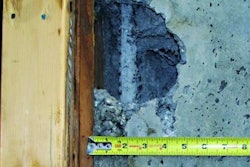
Minnesota stands to lose millions of dollars in revenue and get saddled with millions more in new expenses for every week that the widespread shutdown of state government persists.
In both subtle and stark ways, the shutdown that began on July 1 will bring new financial pain to the state treasury. Closing many operations will save the state some money, but an array of revenue sources as diverse as the lottery and highway toll lanes have been cut off.
Significant new costs also are emerging, some of which the state will never recover.
"It's not like money stops going out the door because of a shutdown," said John Pollard, a spokesman with Minnesota Management and Budget.
One of the biggest new expenditures: unemployment benefits for roughly 22,000 freshly laid-off state employees. In most cases, those workers are entitled to collect 50 percent of their pay while not working, according to a spokeswoman for AFSCME, the union that represents 18,000 state workers.
Those workers also will continue to receive health insurance at a cost of $4.7 million a week to the state. Altogether, the state could be shelling out $13 million a week to keep all those workers idle, based on the average salary of $38,000 earned by a state union member.
"We still believe a shutdown costs more than it saves," AFSCME spokeswoman Jennifer Munt said.
No one in the state has hard numbers on the total financial impact of the shutdown. Figures likely won't be tallied until the crisis is over and the state reopens for business.
But the costs will be both routine -- maintaining and securing government buildings and computer systems not in use -- and extraordinary.
Consider the state's Revenue Department, where just 53 of 1,504 employees are still on the job. While voluntary tax payments will continue, the audit section has been mothballed. That means the state stands to lose about $52 million in uncollected payments per month.
"Because auditors are not working on new audits, that money is not coming in," Revenue Department spokeswoman Lynn Andrews said. "We do not expect to recoup that."
Another lost revenue stream -- commuters. Normally, motorists pay the state $40,000 to $50,000 a week for MnPass privileges, which allows them to beat the traffic by using express lanes on parts of Interstates 35W and 394.
More significant, perhaps, will be the interruption in highway construction. MnDOT shut down more than 100 road projects.
"There is a cost, but I can't tell you what that will be," MnDOT spokesman Kevin Gutknecht said. "It's very disruptive. It's the middle of the construction season."
Gamblers will be another source of lost cash. Minnesota will lose about $2.3 million in profits from weekly lottery sales, according to Dale McDonnell, the lottery's assistant director and general counsel.
Retailers have pulled all their scratch-off tickets and stopped selling weekly draw tickets for various promotions. McDonnell said people with winning tickets will not be able to cash in for a while.
"We are suggesting that if you have a winning ticket, you should sign it with your signature and put it in a safe location, and when we're up and running we'll gladly give you your prize money," he said.
The shutdown could affect as many as 90,000 state park campers and visitors daily, with daily losses to the state approaching an estimated $200,000. For the entire month of July, state parks generated more than $4 million last year, or about a third of total annual receipts.
Wisconsin and other states are expected to capture some of Minnesota's dollars. But some revenues, particularly licensing fees, will be made up after the government reopens, according to state economist Tom Stinson.
"My guess is there will be some catchup after workers are called back, but some (revenues) will be lost permanently," Stinson said.
Staff writers Paul McEnroe and Larry Oakes contributed to this report.
(Distributed by Scripps Howard News Service, www.scrippsnews.com.)


















